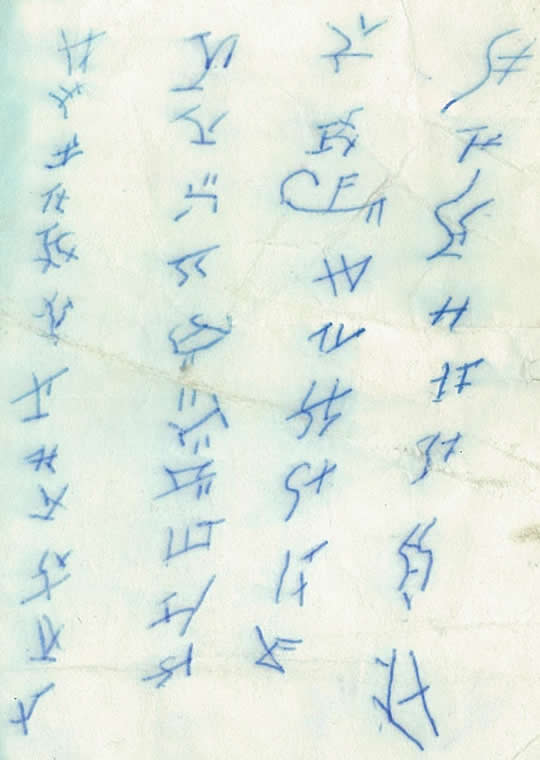Книга /’kniga/ is a Russian word for book, and also appears in other Slavic languages: кніга in Belarusian, книга in Bulgarian, Macedonian and Ukrainian, knjiga in Croatian and Slovenian, kniha in Czech, knéga in Kashubian, kъńiga (book, character, writing) in Old Church Slavonic, książka in Polish, and књига in Serbian.
It apparently comes from the Proto-Slavic *kъniga, from Old Turkic *küinig, from the Bulgaric Turkic *küiniv, from the Uyghur kuin, kuinbitig (book-spool/scroll), possibly from the Chinese 經 (jīng in Mandarin, *kˤeŋ in Old Chinese = classics, sacred book, scripture). It is possibly also related to:
Armenian: kniќ (slab, letter)
Assyrian: kuniku (slab, document)
Hungarian: könyv (book)
Korean: 권 (kwen – book)
Mordvin: końov (paper)
Sumerian: kunukku (seal, stamp)
If all these words are indeed related, it’s possible that they come from a common source – maybe Chinese, as paper was invented in China in about the 1st century AD, and books sometime after that. Are there any similar words in other languages?
